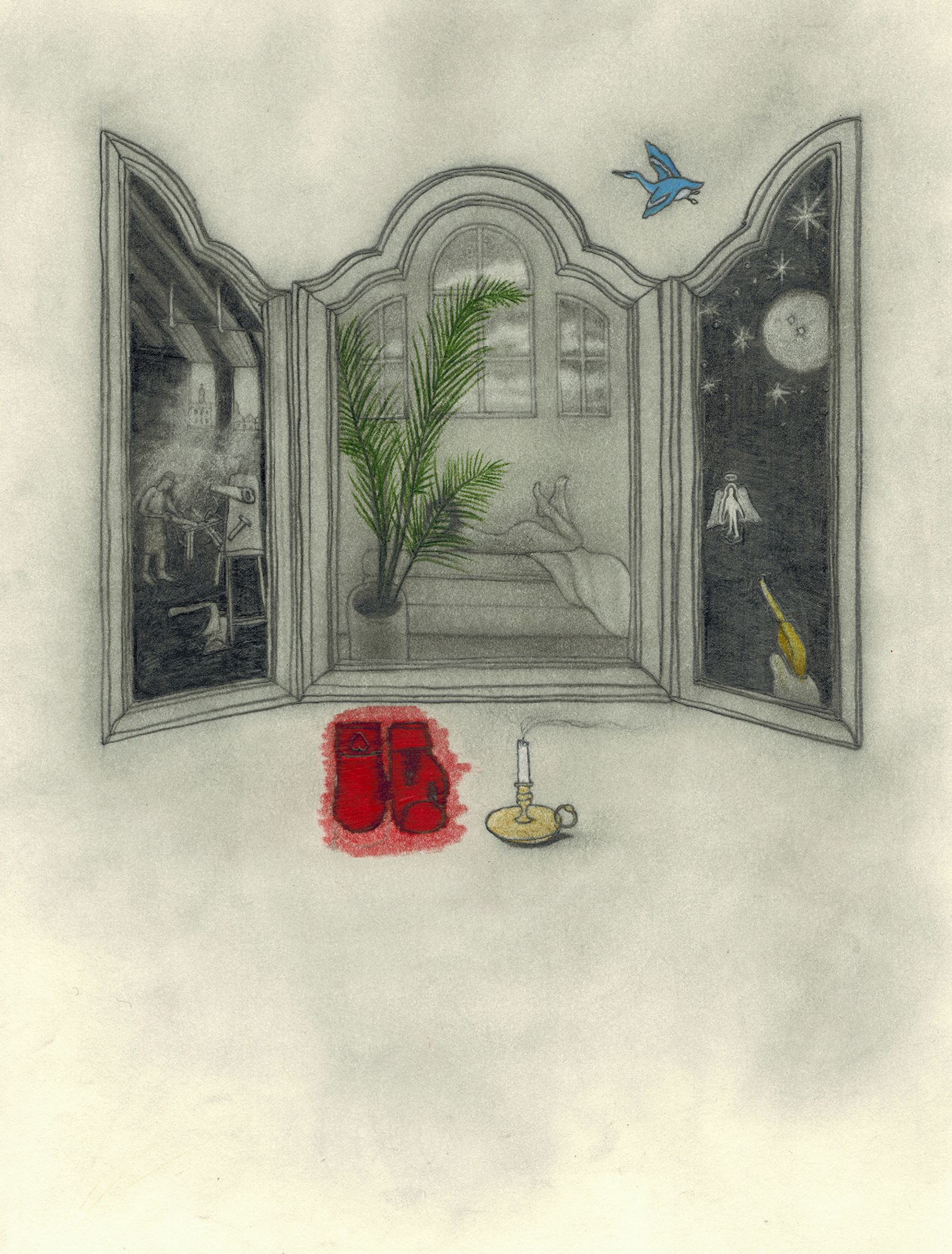
Two Poems

Apex Predator
Apex predatorship is not defined by what the organism hunts or kills, or what hunts or kills it, but what it eats. Based on its diet an organism is given what’s known as a “trophic score,” placing it at a certain level. Plants score 1, herbivores score 2, and so on, up to 5.
Animals on the highest levels are hunters that have no natural predators and that eat only meat, such as orcas, boa constrictors, or river otters. A human who eats a diet of plants would score differently than one who eats meat, though trophic levels are not typically calculated on an individual level but a species level. A human would score, on average, about a 2.2, around the same as a pig or an anchovy.
I once dated a guy who was a self-proclaimed Marxist. He held a deep sympathy for the agrarian workers employed by factory farms in Florida; he identified himself politically with communist movements in Latin America; he said that owning a pet was bourgeois, and that buying pet food when there were people who had food insecurity was sick.
He knew I was a vegetarian, but once, when he made me dinner, he included bacon in the pasta. “I didn’t think you’d mind,” he said. He has since died so I don’t feel weird writing this poem. In fact I feel that he would find it funny.
Satellites
Once, I stepped out into my yard and looked up into the night sky. What appeared over my house was a thread of stars floating across the visible air, like a moving constellation. I didn’t know what I was seeing – for a moment my brain short-circuited, refusing to understand. It was beautiful, I felt, but also threatening. Who wants to see stars move like that?
I called my husband out to the yard, and he explained it to me. The thing I was looking at was Starlink, the broadband internet satellite designed by SpaceX, on its way up to orbit. I felt silly once I learned what it was – though my reaction had been private, the moment I spotted it had felt momentous. I felt like a prehistoric human witnessing a solar eclipse: what I saw was incompatible with what I understood about the sky itself. I felt as though what I witnessed could have been a precursor to my own destruction.
The stars have been a way for humans to orient ourselves since prehistory. We look to them for navigation, the seasons, the weather. Even when we can’t identify individual stars, we think of them as static above us; they travel the night sky, but predictably. So it’s hard to describe the feeling when a length of stars is moving in an arbitrary direction with great certainty and purpose. I felt the control slip out from between my fingers. Everything I understood no longer applied.
Is this an exaggeration? I don’t know. But when I looked up “seeing Starlink for the first time” as a search query, I ended up on various threads that seemed to echo the way I felt. The experience was singular, confusing, moving. “It felt like the world was changing in a way I couldn’t comprehend,” one person wrote. Another described it as a “space dragon.” Starlink was the internet put into orbit by a rich guy, and it made us all feel small.
There are 4519 Starlink satellites in orbit, of which 4487 are operational, at the time when I write this. There are plans to put up nearly three times as many. Before long the appearance of the train of stars will be commonplace. Maybe it won’t scare us then.
Niina Pollari
Niina Pollari is a poet and Finnish translator currently located in Western North Carolina. She is the author of the poetry collections Path of Totality (Soft Skull 2022) and Dead Horse (Birds, LLC 2015), as well as the co-author of the split chapbook Total Mood Killer (Tiger Bee Press 2017).
Patrick David
Patrick David (b. 1987) is a multi-disciplinary artist and filmmaker. His short Line Dogs premiered in 2022 and he is currently working on his first feature-length film, Little Falls. More of his work can be found at https://www.instagram.com/patrick_____david
